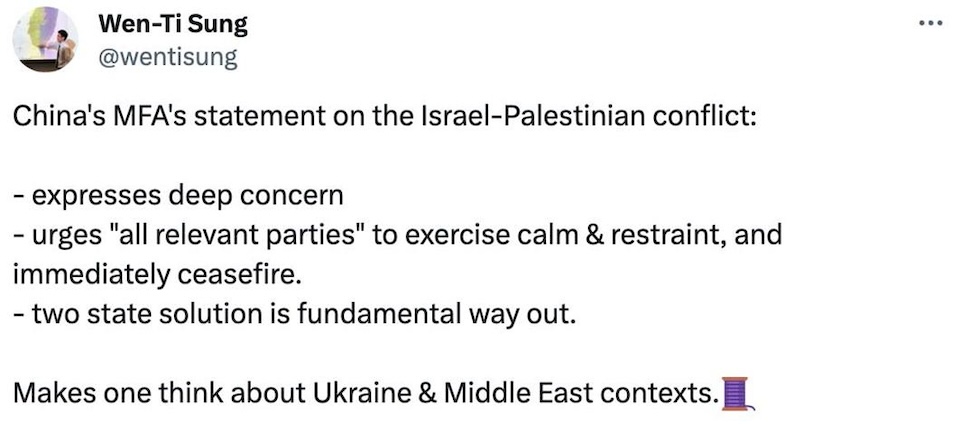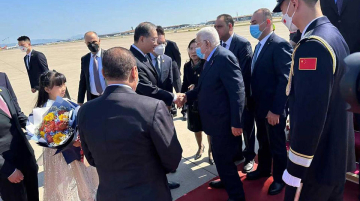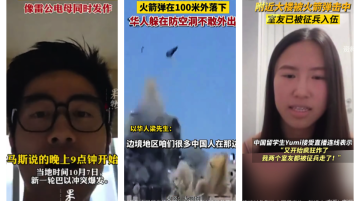
China analysts are parsing through the Chinese Foreign Ministry’s statement on the Israel-Palestinian conflict to look for clues on which way Beijing will go in how it responds to the war.
Wen-Ti Sung, a lecturer in the Taiwan Studies Program at Australia National University and a fellow at the Atlantic Council, provided one of the first and most comprehensive analyses of the statement in a 14-part post on the social media site X.
The following is an abridged version of the thread that has been slightly edited for clarity:
The statement’s slightly stand-offish tone aside, one wonders why China Ministry of Foreign Affairs only vaguely identifies “Palestinian armed groups in the Gaza Strip”, when most major Western media outlets and US govt already call out Hamas by name.
Is it just waiting for more data to come in before pointing fingers or is it about preserving China’s subsequent diplomatic maneuverability? (e.g. by limiting blame to isolated small groups gone rogue rather than organizations, let alone state-like actors).
In any case, the conflict is an unfortunate development for Chinese diplomacy. While China has been widely criticized for inaction over Ukraine-Russia peace talks (if not low-key enabling Russia), Beijing has tried to offset that pressure by making progress in the Middle East.
In Feb 2023, China welcomed Iran’s President Ebrahim Raisi — the first Iranian leader to visit China in 30 years. A month later, by March 2023 China helped facilitate negotiations towards a Saudi-Iran rapprochement.
It was heralded as “China’s Diplomatic Coup in the Middle East.”
China enjoyed that perception of influence which both offset pressure on Ukraine-Russia and fed into its narrative of “East is Rising” in the Middle East.
In sum, China worked on Middle East diplomacy to offset pressure on its inaction on Ukraine-Russia. It brokered a Saudi-Iran deal, and was working on Israel-Palestine. Long shot but the very perception of its “effort” is useful.
The new Israel-Palestine conflict upends all that.





